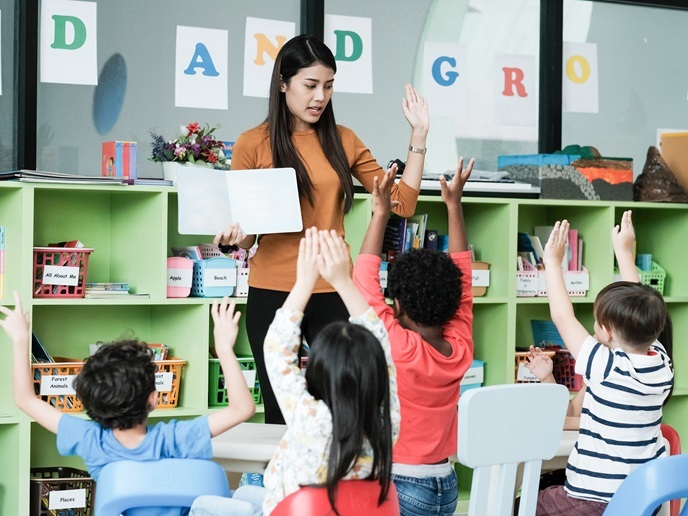Successful educational actions to give child refugees a fair start
A third of refugees and migrants who arrive in Europe are children, according to UNICEF. These children, often unaccompanied and traumatised, face huge disruptions and uncertainties. A key challenge is providing them with mental health support, as well as stable and regular education. The REFUGE-ED project sought to deliver this with educational actions and mental health support approaches backed by academic research. “Our aim was not to create new knowledge but rather put in place actions that we already know will have an impact,” explains project member Emilia Aiello from the Autonomous University of Madrid in Spain.
Reception classes
The REFUGE-ED project began by identifying key actions important for education and mental health support from the existing academic literature. It then brought together academics and NGOs involved on the front line. “We know for example that children at reception centres might only be there for a couple of months before moving on,” adds Aiello. “However, they still have educational needs.” One action identified was the need to train reception centre staff to teach children subjects such as mathematics and science. This could prevent migrant children falling behind in core subjects and slipping through the cracks. Actions were piloted at 46 sites across six countries: Bulgaria, Denmark, Greece, Ireland, Italy, Spain and Sweden. Locations were chosen to reflect the diverse migratory contexts of Europe, as well as both formal and non-formal education settings (i.e. refugee camps, reception centres and schools). Each action was tailored, depending on the needs of each context.
Core subjects
The REFUGE-ED project succeeded in underlining the importance of teaching migrant and refugee children core competences such as mathematics and science. This is possible and necessary, whatever the context. “At some point these children will be out in society, and will need skills that can help them better navigate the host society,” says Aiello. “It is not enough just to teach them to cook.” A second key lesson was the importance of co-creating educational actions with the community, to ensure that needs were being fulfilled. The project also underlined the importance of dialogue. “We found that reading a chapter of a classic work like ‘The Odyssey’ or ‘Don Quixote’ helped kids to learn the language, acquire new vocabulary and express themselves,” notes Aiello. “At a reception centre in Spain for example, some children explained how the journey of Odysseus reflected their own journey.” The project also confirmed the efficacy of a ‘train the trainer’ approach. Across the 46 pilots, community members and teachers were trained to implement actions, through a co-creation approach. This also ensures that staff can train new recruits if they decide to move on.
Expanding actions
The REFUGE-ED project established a Brokering Knowledge Platform, which acts as a central hub for knowledge exchange and the implementation of effective practices. These actions can often be implemented without any additional resources required. The project team is encouraging professionals such as social workers, aid workers and teachers to use the platform as a means of connecting, to find the complementary expertise they need. This will help to bring educational actions to other regions. Aiello and her colleagues are now looking to expand their work to other parts of the world, including refugee hotspots such as northern Syria and southern Turkey. “There are hundreds of kids here receiving no education,” she says. “If we can show what we can do with even one pilot project, then we can then scale up our actions.”
Keywords
REFUGE-ED, migrant, children, education, mental health, refugee, science, mathematics



